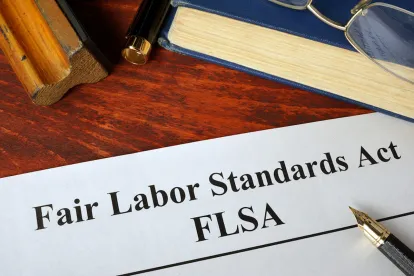A named plaintiff who files a collective action for overtime pay under the Fair Labor Standards Act (FLSA), and whose individual claims are dismissed without prejudice because the district court lacks jurisdiction over the plaintiff’s former employer, is not entitled to tolling of the statute of limitations of those claims. Therefore, when the plaintiff subsequently refiled those claims in the proper district court after the maximum limitations period had expired, those claims were rightly dismissed with prejudice by the second court. Wright v. Waste Pro USA, Inc., 2023 U.S. App. LEXIS 14692 (11th Cir. June 13, 2023).
The Eleventh Circuit has jurisdiction over the federal courts in Alabama, Florida, and Georgia.
Background
Plaintiff Anthony Wright worked as a driver for Waste Pro Florida, a subsidiary of parent company Waste Pro USA, from September 2014 to November 2015. In October 2017, he and two other drivers filed both individual claims and a putative collective action in the U.S. District Court for South Carolina, against the parent company and several of its subsidiaries under the FLSA, claiming violations of the Act’s overtime provisions.
In December 2017, the parent company and Waste Pro Florida moved to dismiss Wright’s claims against them, on the basis that the South Carolina court lacked personal jurisdiction over them. In July 2019, the district court granted the defendants’ motions and dismissed Wright’s individual claims without prejudice.
In August 2019, Wright refiled his claims in the U.S. District for the Southern District of Florida. However, because the FLSA provides for a two-year statute of limitations, or at most a three-year limitations period for “willful” claims, and because Wright last worked for Waste Pro in November 2015, the parties agreed that all of Wright’s claims would be untimely unless the Florida court concluded that the limitations period was tolled. The Florida court concluded that his claims were not tolled during the pendency of his claims in South Carolina and further that no basis existed for equitable tolling of the limitations period on his claims. Therefore, the court dismissed his claims with prejudice.
The Eleventh Circuit Decision
Wright appealed and the Eleventh Circuit affirmed the dismissal. As to Wright’s first argument, the Court of Appeals held that his claims were not tolled during the pendency of the South Carolina case because that case and his subsequent lawsuit in Florida were separate cases. “For purposes of a limitations period, an action that is dismissed without prejudice is ordinarily treated as never filed,” noted the Eleventh Circuit, and “[s]uits under the [FLSA] are not an exception to that rule.” Therefore, Wright was obligated to file his claims in Florida within the maximum three-year limitations period if they were to have a chance of survival. The court of appeals distinguished Wright, as a named plaintiff in the South Carolina lawsuit, from those who joined the lawsuit only as “opt-ins” to the collective action.
As to equitable tolling, that extraordinary remedy potentially might have been available only if Wright had no adequate remedy at law. Here, however, Wright had two such legal options: He could have filed a “placeholder” complaint in Florida to preserve his claims during the limitations period while the South Carolina case proceeded, or he could have filed an appeal of the South Carolina court’s dismissal order. He did neither. Thus, his claims were properly dismissed.





 />i
/>i

